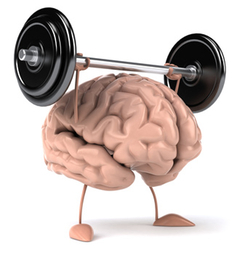Want a Smarter, Healthier ‘Noggin? Become Bilingual
Medical Pharmaceutical Translations • Feb 1, 2016 12:00:00 AM

When I tell people I work at aiaTranslations, complete strangers excitedly ask me what languages I speak fluently. I usually mumble something about knowing a little French and German, languages I have studied in the past. Typically, they all lower their gaze as if ashamed for me. I can speak English fluently, solve difficult Sudoku puzzle in record time, hold my own while watching Jeopardy, skillfully mimic foreign accents, and yet I am woefully inept at speaking another language.
Through the years, I have studied some languages on and off, here and there. I adore listening to French reporters speaking in mellifluous tones about the state of the world, which- when spoken in French- never seems as dire as it is in actuality. I soak up cultural stories and grammar like a sponge. I even enjoy the occasional eavesdropping on people speaking in foreign tongues, just to see if I can understand them. The entire time, I have been a jealous monoglot, for I have not reaped the benefits that come from knowing another language. I have never laughed with friends in Spanish or Greek, nor am I, I feel, as smart as all the linguists out there! In fact, there are many positives behind knowing a foreign language that go beyond the practical. Perhaps one day, I will be able to join the ranks, because these reasons are hard to resist.
Strengthen Mental Muscles
Other than the useful benefits of speaking more than one language in an increasingly globalized world, it can also make you smarter than monolinguists. It has profound effects on your brain. Rather than a second language interfering with a child’s development, researchers now know that it actually forces the brain to resolve issues and, in effect, strengthen the cognitive muscles. According to this article in the New York Times, bilinguals are more adept at solving mental puzzles, probably due to their brains switching from one language to another. Apparently, scientists now know that executive function, the system in our brains that access certain regions or memories when prompted, is what helps us plan, solve problems, stay focused and switch between tasks. Ok, so executive intelligence isn’t the same as intelligence, per se, but it is part of the equation.
According to scienceline.org, a bilingual’s brain is “engaged all the time.” When a monolingual sees a cat, they just say “cat.” When a bilingual sees a cat, they have the opportunity to make a decision between two words. These “micro-decisions” strengthen that executive function and the more your brain makes connections, the better its wiring becomes. How do scientists know this? They studied blood flow to the areas of the brain that control executive function and sure enough, bilinguals fared better than monolinguals. They had more activity in both hemispheres of the pre-frontal cortex, which control that all-important executive function.
Open Your Eyes to a New World
A theory known as linguistic relativity proves that learning a new language can also change the way we see the world. One example is color perception between different cultures and their languages. Because Japanese has many words to describe the color blue, the Japanese are able to see more shades of blue than English speakers. In contrast, the Himba tribe of Namibia only use five words to describe every color in the world. Without a word for the color blue, the Himba find it hard to differentiate blue from green — something quite easy for English speakers. Imagine what else we can “see” just by knowing another language.
Rethink the Phrase “A Thick Skull”
So, we now know that multilinguals create new neural pathways in their brains just by being fluent in another language. This ties into the fact that languages fluency slows the onset of diseases such as Alzheimer’s and dementia on average 4-and-a-half years later in life! Working your brain in a multi-faceted way such as through different languages helps it stay healthier in our golden years!
So, what is a monoglot like me to do? All hope is not lost. In a 2012 Swiss study, scientists discovered that learning a language later in life is associated with the thickening of the cerebral cortex. These neurons are responsible for memory, thought, consciousness and language. Apparently a thicker cerebral cortex leads to better memory and sharper thinking later in life. So there is hope for me yet!
Knowing all these benefits makes my desire to learn another language stronger than ever. In order to reap all these benefits, I have created a plan to aid me in my quest to learn another language fluently. I will be less lazy in my foreign language study. I will focus on just one language and converse more with other people. I will listen more and read more. Most importantly, I will let go of the idea of instant perfection and embrace my inner child. You know the one – the one who is not timid, worried and mortified by mistakes. That is why kids learn languages so well. They haven’t learned how to embarrass themselves yet. Perhaps through persistence, I will be able to better connect to different people and understand their cultures, thinking, and humor. Then my life will be richer, my brain heathier and smarter. I just need to start practicing.
by Ilona Knudson
#executivefunction #translations #monoglots #bilinguals #linguistics #linguisticrelativity #foreignlanguagelearning #aiatranslations
